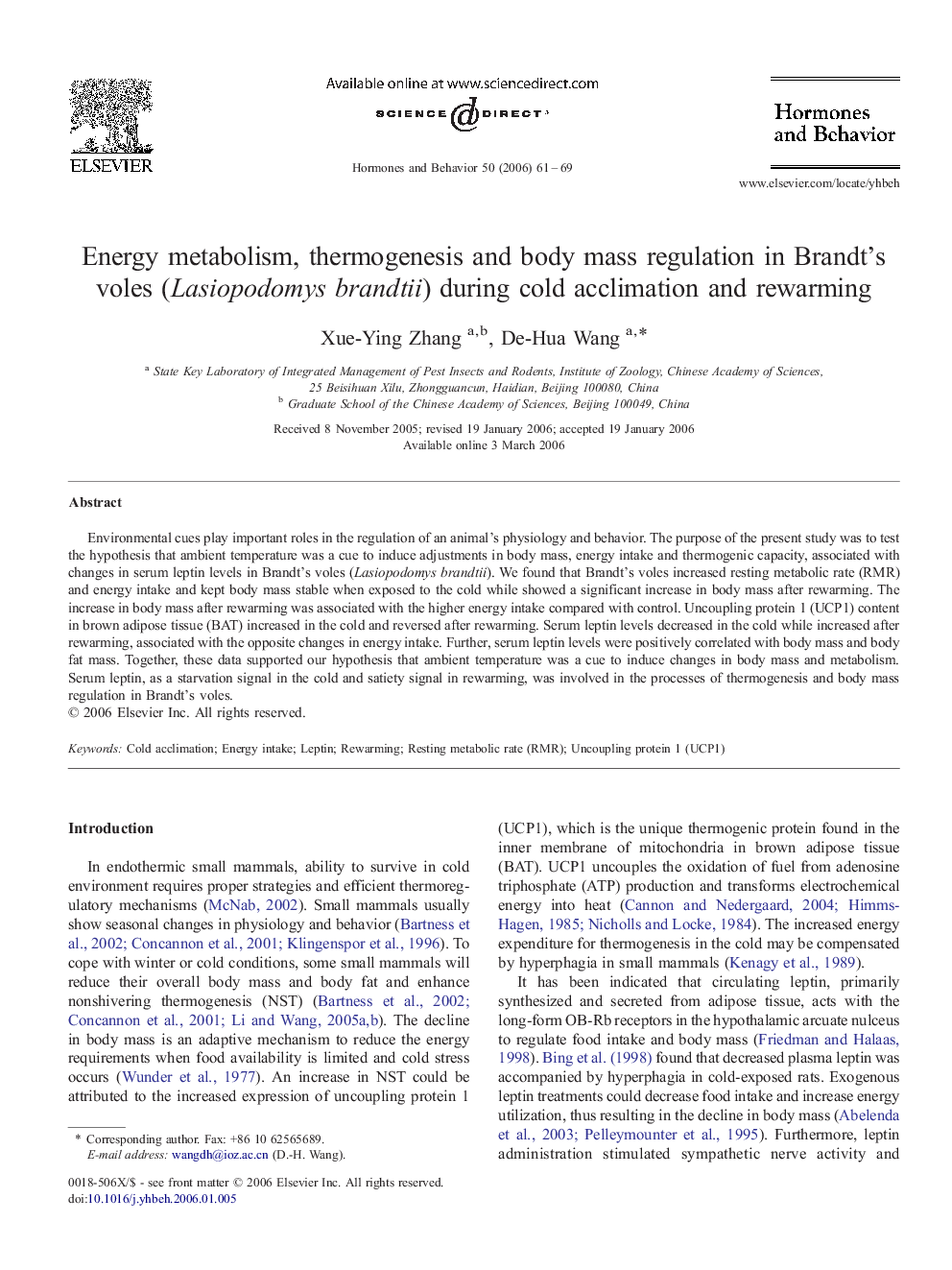| Article ID | Journal | Published Year | Pages | File Type |
|---|---|---|---|---|
| 323577 | Hormones and Behavior | 2006 | 9 Pages |
Environmental cues play important roles in the regulation of an animal's physiology and behavior. The purpose of the present study was to test the hypothesis that ambient temperature was a cue to induce adjustments in body mass, energy intake and thermogenic capacity, associated with changes in serum leptin levels in Brandt's voles (Lasiopodomys brandtii). We found that Brandt's voles increased resting metabolic rate (RMR) and energy intake and kept body mass stable when exposed to the cold while showed a significant increase in body mass after rewarming. The increase in body mass after rewarming was associated with the higher energy intake compared with control. Uncoupling protein 1 (UCP1) content in brown adipose tissue (BAT) increased in the cold and reversed after rewarming. Serum leptin levels decreased in the cold while increased after rewarming, associated with the opposite changes in energy intake. Further, serum leptin levels were positively correlated with body mass and body fat mass. Together, these data supported our hypothesis that ambient temperature was a cue to induce changes in body mass and metabolism. Serum leptin, as a starvation signal in the cold and satiety signal in rewarming, was involved in the processes of thermogenesis and body mass regulation in Brandt's voles.
